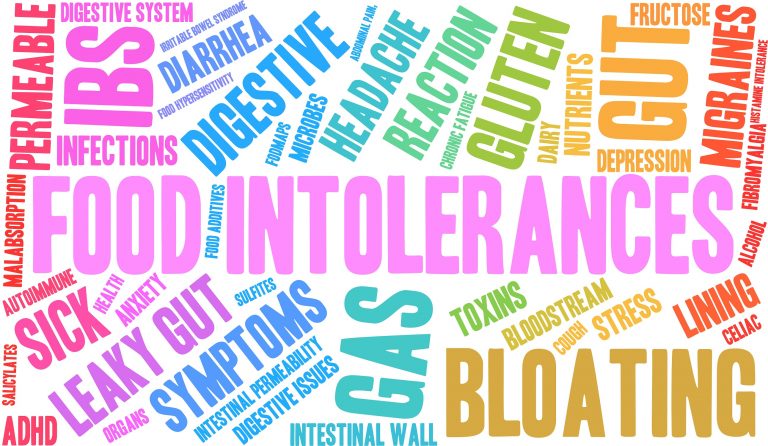Fructose intolerance is a type of food intolerance that occurs in two varieties. One is an inborn fructose intolerance, otherwise known as fructosemia, associated with a mutation in the gene that codes the enzyme necessary to metabolize fruit sugar. The second type of intolerance is the syndrome of incorrect absorption fructose as substance, and it is this type of intolerance that occurs most frequently in the population.
Fructose malabsorption syndrome
Incorrect fructose absorption syndrome is caused by the lack or insufficiency of the protein needed to transmit fructose through the membranes in the cells. Too little availability of this protein blocks the breakdown of fructose in the body, resulting in the sugar fermenting in the intestine. As a result of fermentation, acids and gases such as hydrogen, methane or carbon dioxide are formed, which irritate the intestinal mucosa, giving rise to ailments characteristic of food intolerance.
It is the presence of one of the gases, hydrogen, that makes it possible to check whether it is a fructose intolerance. A healthy body does not produce hydrogen, which is why a hydrogen breathing test is performed if a fruit sugar intolerance is suspected. It consists in administering a dose of fructose and then measuring the concentration of hydrogen in the exhaled air. If the result is positive, fructose intolerance can be found.
Symptoms of fructose intolerance - how to recognize an intolerance to fruit sugar?
Fructose intolerance, like other food intolerances, manifests itself primarily through unpleasant symptoms from the digestive system. The most characteristic symptoms of fructose intolerance are those occurring after consumption of fruit sugar:
- bloating, excessive gases
- stomach pains, feeling of fullness, overflowing in the stomach
- transfers in the abdomen
- nausea and vomiting
Underweight and lack of appetite can also be a consequence of undiagnosed fructose intolerance. In addition to this, other food intolerances, depressive states, food shortages or immunosuppressions are very often associated with fructose intolerance. Since fruit sugar intolerance is a condition that depends on the consumption of foods containing fruit sugar, the only treatment is a diet without or with limited fructose content. Only through an elimination diet is it possible to get rid of the unpleasant symptoms of fructose intolerance.
Products without fructose - what to eat with fructose intolerance?
If you suffer from fructose intolerance with your daily diet, you should supply products without fructose or those that contain little fruit sugar. A diet with fructose intolerance should be based on products such as:
- all kinds of meat and meat products, e.g. poultry, pork, beef, poultry sausages
- fat and lean fish such as cod, salmon, mackerel
- natural dairy products, e.g. natural yoghurt, kefir, buttermilk
- natural cheeses, without additives, e.g. cottage cheese, yellow cheese, eggs
- vegetable fats, e.g. vegetable oils, olive oil
- cereal products with low fructose content, e.g. rice, oatmeal, rye bread, buckwheat groats
However, you should always observe your body and eliminate the product, even if it is on the list of permitted ones. Sometimes the tolerance of even some fruits or vegetables is an individual matter and can be different for each person.
What to avoid in a diet without fructose?
A diet with fructose intolerance requires the elimination of products in which fructose is present. Fructose is primarily the sugar in the fruit, so it is necessary to give up eating most of the fresh fruits.
Moreover, when suffering from fructose intolerance, it is always necessary to keep in mind that fructose is added to many food products (from which we would absolutely not expect its presence) in order to give them a sweet taste. Hence, it is possible to find it in ketchup, ready-made sauces, dressings, marinades, breakfast cereals, instant dishes, certain types of bread, medicines or light products.
Therefore, in order to be sure that a given product does not contain fructose, it is necessary to read the label placed on it carefully to ensure that its consumption does not end up with unpleasant ailments.






